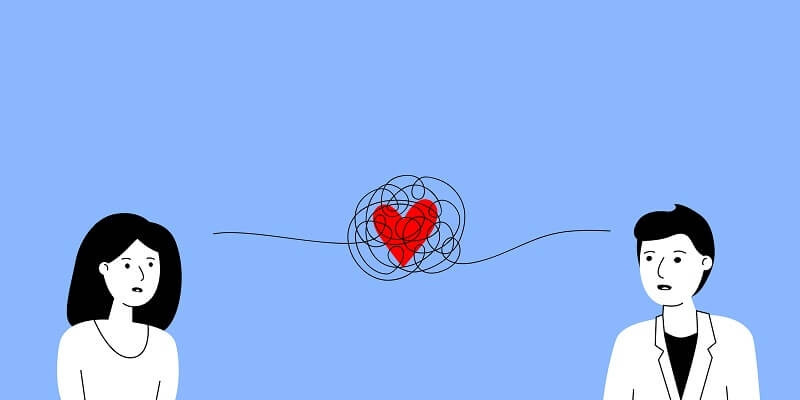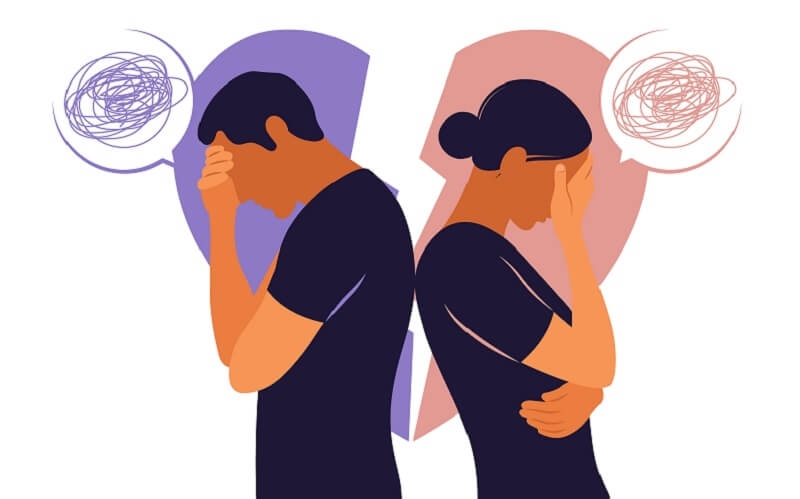Ground hogging in Relationships: Are You Stuck in a Loop?

"Groundhog Day," the classic 1993 film starring Bill Murray, tells the story of a weatherman who finds himself stuck in a time loop, living the same day over and over again. While this movie is a delightful comedy, it also serves as a poignant metaphor for a phenomenon that many people experience in their relationships. Groundhogging in relationships is a term that describes the feeling of being stuck in a repetitive cycle of problems and conflicts, unable to break free. In this 1200-word exploration, we will delve into the concept of Groundhogging, its causes, and how individuals can identify and escape these relationship loops.
The Groundhogging Phenomenon: Repeating the Same Relationship Mistakes
Just like the film's protagonist, Phil Connors, who wakes up each day to the same circumstances, individuals caught in Groundhogging relationships often find themselves facing the same issues repeatedly. These issues can manifest in various forms, including constant arguments, misunderstandings, or unfulfilled promises.
It feels as though you are trapped in a never-ending cycle with no discernible progress. This repetition is emotionally exhausting and can lead to frustration, resentment, and even the deterioration of the relationship itself.
Common Signs of Groundhogging in Relationships

- Familiar Arguments: If you find yourself having the same arguments or conflicts with your partner on a regular basis, this could be a sign of Groundhogging. Whether it's about money, communication, or intimacy, reliving the same disagreements can be indicative of a deeper issue.
- Unresolved Issues: Groundhogging often involves issues that are never fully resolved. Instead, they are temporarily patched up or swept under the rug, only to resurface later. This creates a sense of dj vu in the relationship.
- Repeating Mistakes: If you or your partner continually make the same mistakes, despite promising to change, this can be a clear sign of Groundhogging. Whether it's forgetting important dates or failing to meet commitments, these repetitions can erode trust over time.
- Feeling Stuck or Frustrated: Groundhogging can make you feel like you're on a hamster wheel, going nowhere. You may become increasingly frustrated and trapped in the same patterns, unable to move forward.
- Lack of Growth: A relationship should ideally be a space for personal growth and development. If you and your partner are not evolving or learning from your experiences, you may be stuck in a Groundhogging cycle.
Causes of Groundhogging in Relationships
Understanding the causes of Groundhogging is crucial for breaking free from the cycle. Poor communication is often at the heart of Groundhogging. When couples fail to express their needs, listen actively, or resolve conflicts constructively, problems fester and recur. Unrealistic expectations about relationships can lead to disappointment and repetitive issues. Believing that a partner should fulfill all your needs or that love should be effortless sets the stage for Groundhogging.
Refusing to take responsibility for one's actions or mistakes can perpetuate Groundhogging. Both partners must be willing to admit when they're wrong and work together to find solutions. Fundamental differences in values and priorities can create a Groundhogging effect. If core beliefs don't align, conflicts will persist. Past relationship traumas or unresolved personal issues can spill over into current relationships, causing repetitive problems. Without addressing these underlying concerns, Groundhogging is likely to continue.
Escaping the Groundhogging Loop
Breaking free from the Groundhogging cycle requires self-awareness, effort, and a willingness to change. Here are some steps to help you escape this recurring pattern in your relationship:
- Recognize the Pattern: The first step is to acknowledge that you are caught in a Groundhogging loop. Reflect on the repetitive issues you face and accept that a change is necessary.
- Open and Honest Communication: Effective communication is key to resolving relationship issues. Create a safe space for open and honest conversations. Listen to your partner, express your needs, and work together to find solutions.
- Set Realistic Expectations: Understand that no relationship is perfect, and every partnership will have its challenges. Setting realistic expectations can help you avoid disappointment and the Groundhogging cycle.
- Seek Professional Help: If communication breakdowns and conflicts persist, seeking the guidance of a relationship counselor or therapist can be incredibly beneficial. A neutral third party can help identify and address underlying issues.
- Self-Reflection: Take time to reflect on your own behavior and contribution to the Groundhogging cycle. Are there recurring patterns in your actions or reactions that need to change? Self-awareness is a powerful tool for personal growth.
- Forgive and Let Go: Holding onto grudges and past mistakes can perpetuate Groundhogging. Learn to forgive and let go of past grievances. Forgiveness doesn't mean forgetting but rather releasing the emotional burden associated with those memories.
- Personal Growth: Focus on personal growth and self-improvement. When both partners are actively working on becoming better individuals, it positively impacts the relationship. Encourage each other to pursue personal goals and aspirations.
- Quality Time Together: Reconnect with your partner by spending quality time together. Engage in activities you both enjoy, and create new experiences that can help shift the focus away from old issues.
- Set Boundaries: Establish healthy boundaries within the relationship to prevent the repetition of negative behaviors or patterns. Respect each other's space, needs, and limitations.
- Consider the Future: Visualize the kind of relationship you want and the changes necessary to achieve it. Set goals for the future and commit to working together to break the Groundhogging cycle.
Conclusion
Groundhogging in relationships can feel like an inescapable loop of frustration and disappointment. However, it's essential to recognize that change is possible. Through self-awareness, open communication, and a commitment to personal and relational growth, individuals can break free from this repetitive cycle and build healthier, more fulfilling partnerships. Just as Bill Murray's character ultimately found a way to break free from his time loop in "Groundhog Day," you too can find a way to break free from the Groundhogging cycle in your relationship and move towards a happier and more harmonious future.
This content was created by AI





